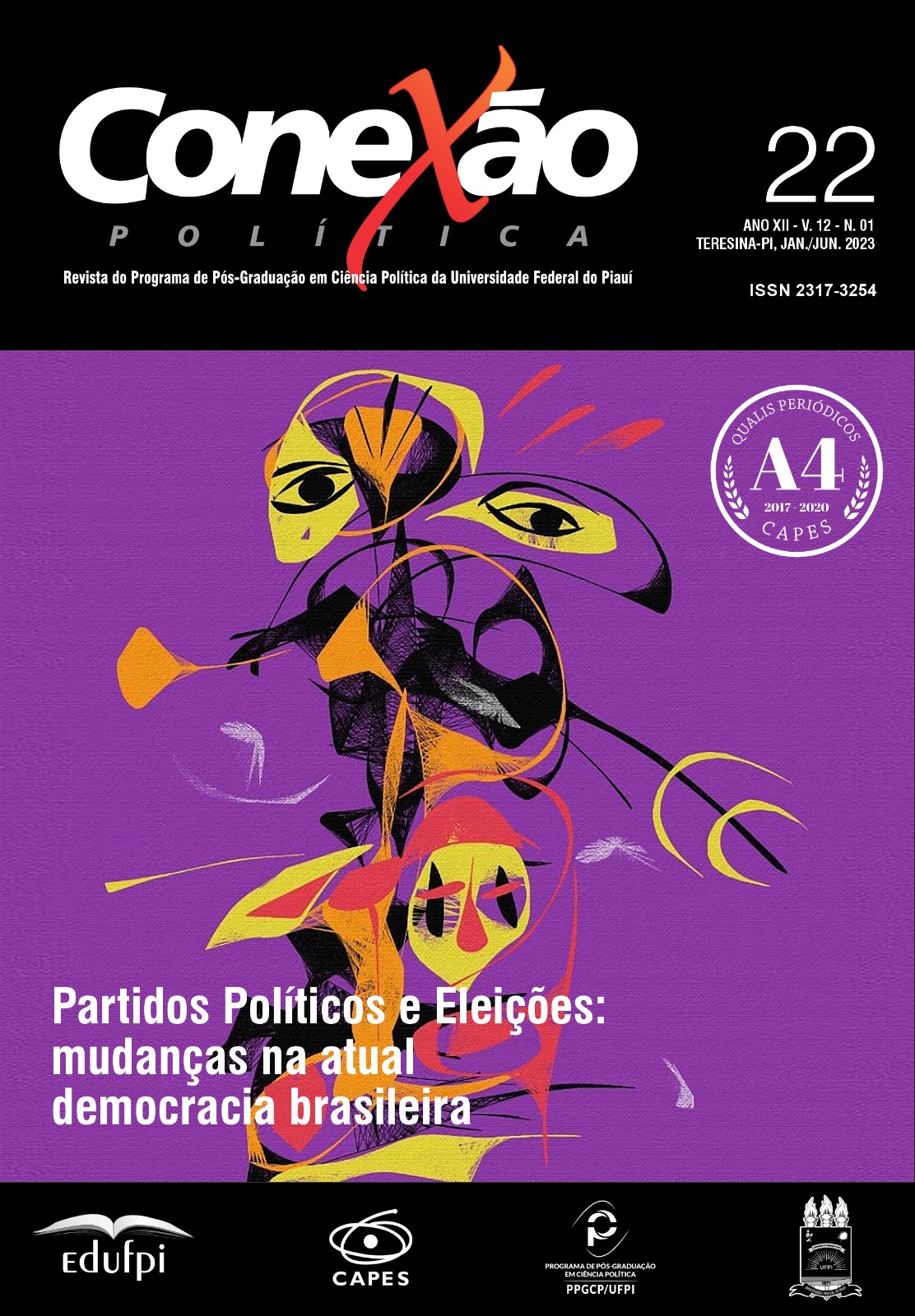Filiações partidárias
inclinações do eleitorado e mudanças nos partidos políticos
DOI:
https://doi.org/10.26694/2317-3254.rcp.v12i1.5628Palavras-chave:
filiações partidárias, partidos políticos, inclinações do eleitorado, mudanças nos partidosResumo
Numa discussão que remonta a partidos políticos e à democracia representativa, recupera-se a relevância daqueles como via importante no regime democrático. Os estudos sobre partidos políticos podem ser uma importante chave para compreensão de aspectos da democracia de um país. Como forma de inferir sobre o cenário político partidário brasileiro, a presente pesquisa se propõe a analisar as mudanças nas filiações dos principais partidos brasileiros ao longo dos últimos onze anos. Para composição dos dados, foi utilizada a base de dados de pesquisa do Tribunal Superior Eleitoral brasileiro (TSE), considerando os anos referenciados e observando se o Brasil está vivenciando um declínio partidário, nas seguintes perspectivas: a) analisar o quantitativo de eleitores filiados aos 36 partidos políticos no Brasil e considerando seu percentual em relação ao número total de eleitores; b) apontar para as transformações no cenário político dos partidos, destacando as principais inclinações do eleitorado. A análise dos dados foi feita através de estatística descritiva, relacionando a literatura e os dados no contexto nacional. Nos resultados percebe-se que as modificações mais nítidas são visualizadas depois das eleições nacionais e estaduais que ocorreram em 2018, em que foi possível observar uma verdadeira oscilação do número de filiados entre diferentes partidos políticos. Concluiu-se que os números mostram um enfraquecimento das identidades partidárias, bem como uma aproximação entre os partidos políticos e o Estado, em especial pela disputa na distribuição dos cargos públicos, posto que a mudança da situação governamental pode ensejar uma considerável reconfiguração nas filiações.Downloads
Publicado
23-01-2023
Como Citar
CASTRO DE ALBUQUERQUE MELO, Esaú; CABRAL DE ALBUQUERQUE NETA BARROS, Terezinha; CAROLINA BESERRA BRASILEIRO, Cyntia. Filiações partidárias: inclinações do eleitorado e mudanças nos partidos políticos. Conexão Política, [S. l.], v. 12, n. 1, p. 127–147, 2023. DOI: 10.26694/2317-3254.rcp.v12i1.5628. Disponível em: https://periodicos.ufpi.br/index.php/conexaopolitica/article/view/5628. Acesso em: 4 fev. 2026.




